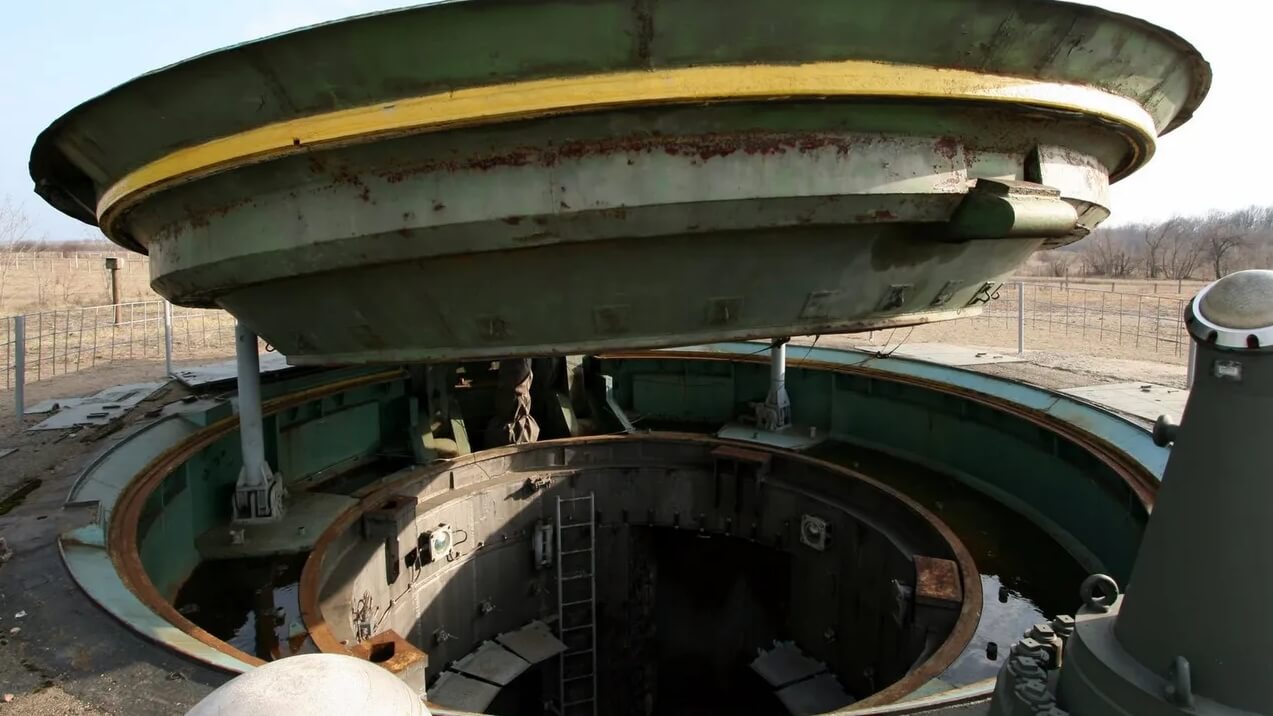"Sovereignty was to be respected". What would happen if Ukraine had not handed over its nuclear weapons to Russia?
Estimated reading time: 5 minutes
Ukraine's decision to surrender its nuclear arsenal in the post-Soviet era was influenced by diplomatic pressure from the US and Russia, alongside economic challenges.

Museum of Strategic Nuclear Forces in Pereyaslav
North Korea continues to develop its nuclear arsenal, resulting in Western countries imposing sanctions on it. Despite this, Kim Jong Un shows no interest in negotiations on denuclearization. The leader may have in mind the fate of Ukraine, which in 1994 surrendered its nuclear potential to Russia in exchange for "guarantees of independence".
Would history have unfolded differently if Ukraine had retained its status as a nuclear power, ranking third in the world in terms of nuclear capability?
DISARMAMENT IN EXCHANGE FOR SOVEREIGNTY PROMISES
Not being a historian, I can say that on December 5, 1994, the so-called Budapest Memorandum would have been signed, although it is quite possible that the major powers would not have provided guarantees to Ukraine if it had not wanted to transfer its nuclear weapons to the Russian Federation.
It is quite possible that in such a situation, external guarantees of border inviolability would not have been necessary for Ukraine. Just as North Korea does not need and does not expect similar assurances from any country today. However, would the international community recognize such a state? Even though its predecessor, the Ukrainian Soviet Socialist Republic, was a founding member of the UN? There may be doubts...
Furthermore, North Korea did manage to acquire nuclear weapons on its own. Ukraine received them as an inheritance from the USSR, as did Belarus and Kazakhstan. By the way, the latter country in 2022 called on the world to achieve total nuclear disarmament.
In exchange for renouncing membership in the nuclear club, Russia, the USA, and the UK undertook to respect Ukraine's sovereignty and territorial integrity and refrain from any threats or use of force against its independence and territorial integrity.
Given the current trend of questioning AI (artificial intelligence) about various matters, I asked Microsoft's AI such questions as: "What if Ukraine had not transferred its nuclear weapons to Russia?"

UKRAINE HAD 176 INTERCONTINENTAL BALLISTIC MISSILES IN THEIR ARSENAL FOR SEVERAL YEARS
"According to Switlana Zalishchuk, advisor on foreign policy to the Ukrainian deputy prime minister for European integration, the Russian invasion would not have started if Ukraine had not given up its nuclear weapons in the 1990s. (...) Zalishchuk stated that countries possessing nuclear weapons are 'untouchable' and 'are not challenged by military force' because nuclear war poses a threat to the entire world. She added that 'because we voluntarily gave up our nuclear weapons and the Budapest Memorandum was ignored, we found ourselves in the situation we are in now' (March 2024, Sky News).
It is unknown how effective the nuclear weapons inherited by Ukraine would be today. Let's also add that about 30,000 pieces of nuclear weapons ended up outside Russia after the collapse of the USSR. It is also unknown whether such weapons would have been modernized or even developed by Kyiv? In alternative history, various scenarios can be presented. Let's stick to the facts.
Before Ukraine joined (in 1994) the Treaty on the Non-Proliferation of Nuclear Weapons and got rid of its nuclear arsenal, it had: 176 intercontinental ballistic missiles, about 4,000 tactical rocket projectiles. It also had 40 aircraft, including strategic bombers capable of carrying nuclear weapons. Within two years, by June 1996, Kyiv denuclearized to zero. Over time, the value of the guarantees from the Budapest agreement dropped to zero, with the final confirmation being the Russian aggression on February 24, 2022.
A reminder of the times when Ukraine had the status of a nuclear power for over five years is the Museum of Strategic Nuclear Forces in Pereyaslav, 300 km south of Kyiv, in the Mykolaiv region. For obvious reasons, this is not a museum to visit now. For now, the best way to visit it is "through YouTube".
UKRAINE REFUSED NUCLEAR WEAPONS UNDER DIPLOMATIC PRESSURE
Understanding the layout of post-Soviet Ukrainian ICBM (Intercontinental Ballistic Missile) bases prompts a query into why Ukraine relinquished its nuclear capabilities. The answer is straightforward.
During that period, there seemed no alternative, and no one in Kyiv envisaged Russia as a threat to Ukraine's territorial integrity. Particularly because, alongside the USA and Great Britain, the Russian Federation guaranteed independence to the nascent state.
Among the manifold factors leading to Ukraine's renunciation of nuclear armaments, diplomatic pressure from the US and Russia loomed large. The dire economic situation in Ukraine also weighed significantly. Coupled with the Treaty on the Non-Proliferation of Nuclear Weapons, a mechanism for managing that portion of the former USSR's nuclear arsenal that lay outside Russia post-collapse, we have (without delving into further intricacies) the answer to the above query.
The dissolution of the world proletariat state did not occur overnight (December 26, 1991). It was a gradual process. On October 23, 1991, Zbigniew Brzeziński participated in deliberations of the Verkhovna Rada of Ukraine as a guest. Anatoly Zlenko, Minister of Foreign Affairs of the still extant Ukrainian Soviet Socialist Republic, addressed the people's delegates:
"I want to emphasize that for the entire world, our stance on nuclear weapons is a litmus test of our civilization, our capacity to envisage a post-confrontation era. We were candidly informed that a Ukraine armed with nuclear weapons isn't anticipated in Europe or globally. Ukraine will be a nuclear-free state..."
And so it transpired. But could Ukraine, mindful of its experience, re-emerge as a nuclear-armed entity? No, it's implausible. For political and financial reasons. This chapter of history is firmly behind Ukraine, and history will not echo itself in this instance!



